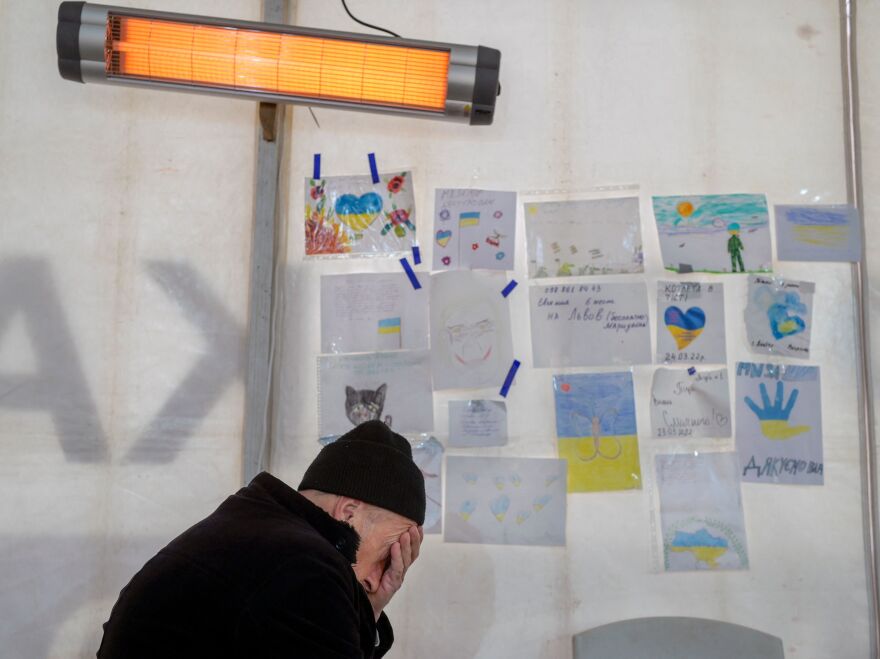For weeks, the Ukrainian city of Mariupol has faced bombardment from invading Russian troops. Thousands of people have died, and countless more have evacuated.
The chaos that has enveloped the city has caused many family members and friends to scatter and lose contact with one another. The whereabouts of so many are still unknown as the siege on Mariupol continues.
Dmitriy Cherepanov, seeing this chaos, saw a grave need and sought a way to fill it. He has created a website, MRPL.life, on which Mariupol residents can post information about their own evacuation in case a family member is searching for them. But most critically, it allows people to post pictures and details of missing relatives or friends who lived in Mariupol.

The site launched only last week, but it's already getting hundreds of posts and thousands of visits, according to Cherepanov.
"It's definitely evolving fast and hopefully will help a lot of people find what they're looking for," he told NPR via Telegram.
Cherepanov lived in the city for 45 years of his life until March 15 of this year — when the Russian troop invasion forced him and his family to flee.
Like millions of others who have fled their homes in Ukraine, Cherepanov and his family evacuated and now live in Kamianets-Podilskyi, a city in western Ukraine.
On Monday, Ukraine said it wouldn't surrender to Russian forces in Mariupol, with the country's prime minister vowing that Ukrainian troops will fight to the end there.
The Russians long have had the Ukrainian forces outgunned, and appear to be on the verge of taking over the city. But Ukrainian Prime Minister Denys Shmyhal told ABC's This Week on Sunday that the port city still had not fallen.
"We will not surrender. We will fight absolutely to the end, to the win, in this war," he said.
By the numbers
In such a short time, thousands of people have visited Cherepanov's site.

More than 10,000 people had visited the site since it launched roughly a week ago, Cherepanov said.
As of Tuesday, more than 1,700 people had created profiles of fathers, mothers, siblings, children and friends whom they are looking for. Users post pictures, the missing person's name, the area where the person lived or was last seen and the date the person disappeared or was last heard from.
The site allows a user to track information about changes to the profile of the person they are looking for. Someone else seeing the post can comment on the profile or send a note to a user directly.
Cherepanov says he created the site "because there is no consolidated information on the internet [or] a convenient service for finding or placing people whom many are looking for."
He knows his way around technology and website creation. His day job is as the founder and developer of the BlueWeb.Host platform and engine.
He's also the same man who created a private museum in Mariupol dedicated to a collection of retro computers. The Russian invasion destroyed the museum and forced Cherepanov and his family to flee.
As the war in Ukraine continues, Cherepanov says he is more than willing to use his talents at a grander scale to help Ukrainians find missing loved ones.
"If such a need arises, I can deploy a site for the whole of Ukraine in a matter of hours," he says. "And if it is necessary, I am ready to do it."
Copyright 2022 NPR. To see more, visit https://www.npr.org.





